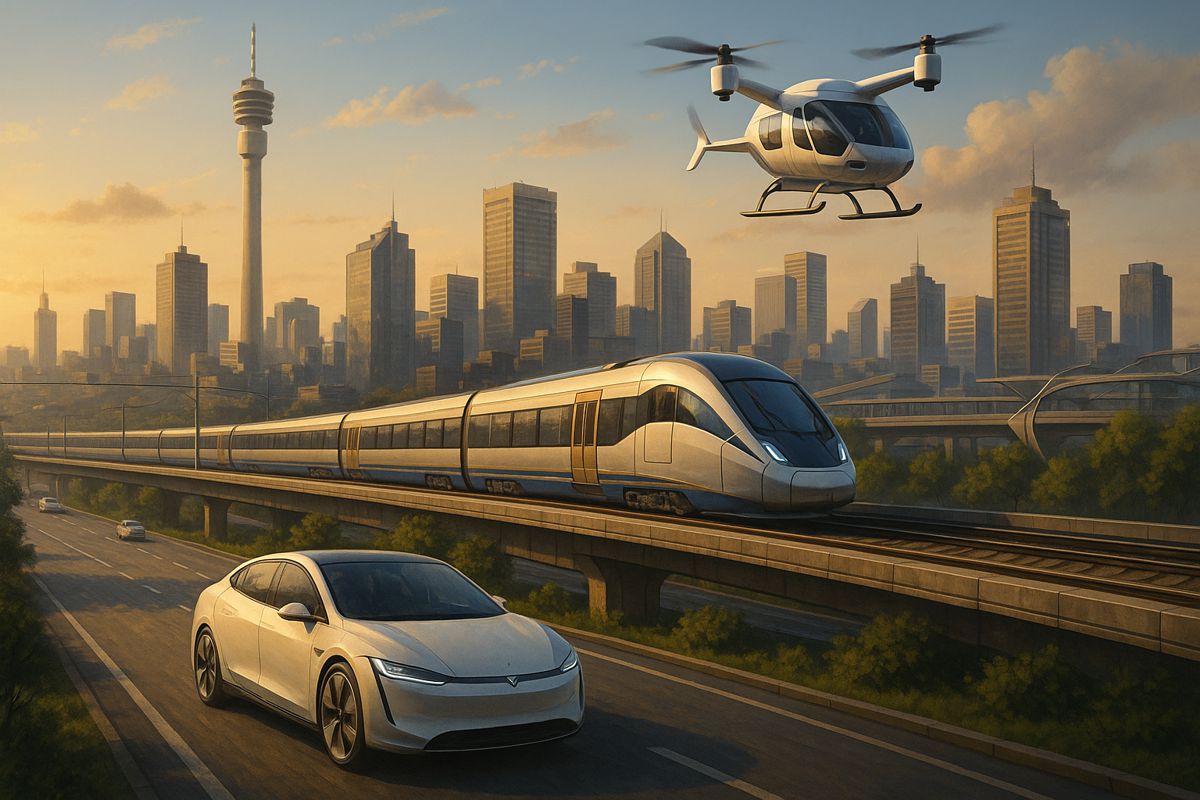Building the Continent’s Transport Future at Smarter Mobility Africa
The annual Smarter Mobility Africa Summit 2025 in Johannesburg brought together the brightest minds and boldest innovators in transport to chart a new course for the continent’s mobility landscape. Held at the Sandton Convention Centre, the event was a vibrant showcase of ideas, technology, and collaboration aimed at reshaping how Africa moves, both literally and economically.
Transforming Mobility Across Africa
The opening keynote set the tone for a dynamic and forward-looking conference, with an emphasis on collaboration, innovation, and inclusivity. As cities across Africa face growing pressures from urbanisation, climate change, and population growth, the need for sustainable mobility systems has never been more urgent.
Ben Pullen, Group Director of Mobility at VUKA Group, captured the essence of the challenge and opportunity before the industry: “Transport is not just about moving people and goods; it’s about connecting communities and driving economic growth.” His message resonated across the packed auditorium, a rallying cry for professionals who work tirelessly in an often underappreciated but vital sector.
Pullen acknowledged the sector’s demanding nature, from long working hours to complex political landscapes, yet reaffirmed that these hurdles only strengthen the collective resolve to innovate. His words underscored a key theme running throughout the event: transport is the lifeblood of development.
Empowering the Minibus Taxi Sector
Among the standout voices was Mmatshikhidi Rebecca Phala, National Spokesperson for the South African National Taxi Council (SANTACO), who made history as the first woman to hold the role. She offered a powerful perspective on the role of the minibus taxi industry, which carries over 15 million commuters daily and remains the backbone of South Africa’s public transport system.
Phala’s message was both inspirational and practical: “For us, mobility is not just transport. It is access, dignity, and daily service to the nation.” She spoke candidly about challenges such as regulatory conflicts and violence but stressed SANTACO’s commitment to modernisation. By embracing smart technologies and green energy, the organisation is taking tangible steps towards a safer, smarter, and more sustainable future.
Her remarks earned praise from Tshepo Kgobe, CEO of Gautrain Management Agency and Transport Authority of Gauteng, who commended the taxi industry’s progress: “They’ve taught us a lot… through collaboration.” The message was clear, the future of transport in Africa relies on inclusive partnerships that value every player, from the informal to the institutional.
Collaboration as a Catalyst for Progress
The summit spotlighted the crucial role of partnerships in driving systemic change. Under Kgobe’s dual leadership roles, the Transport Authority of Gauteng and Gautrain have become models of integration, showing how coordinated strategies can unlock efficiency and improve regional connectivity.
His presence at the summit illustrated how collaboration between public and private sectors can turn vision into action. Integrated transport systems, linking road, rail, and digital infrastructure, were identified as the backbone of sustainable urban growth. These partnerships not only streamline commuter experiences but also reduce congestion and carbon emissions, making cities more liveable.
Trust as the Foundation for Smart Mobility
Dominic Wilhelm, Executive Director of The Global Trust Project, brought a vital human dimension to the discussions, reminding attendees that the success of any smart system rests on trust. He noted: “When stakeholders trust each other, they are more willing to share resources, insights, and risks. This trust is what enables us to work together towards a common goal of creating smarter, more connected cities.”
His remarks struck a chord in an industry where collaboration often crosses institutional and national boundaries. Trust, he argued, is not just a moral ideal but a measurable asset, one that fuels the exchange of data, investment, and innovation.
Smart Technology Takes Centre Stage
Innovation was a key theme throughout the event, with several showcases of cutting-edge technology transforming Africa’s transport networks. Visa’s ticketing innovations stood out as an example of how digital solutions can simplify journeys and enhance accessibility. Contactless payment systems and mobile ticketing are revolutionising how commuters pay for travel, promoting financial inclusion and improving efficiency across public transport systems.
Meanwhile, the Johannesburg Road Agency (JRA) demonstrated how it’s integrating Internet of Things (IoT) technology into its infrastructure. Smart sensors and real-time data analysis are being used to monitor traffic flow, detect potholes, and optimise road maintenance. As Kgobe observed: “The integration of IoT is not just an upgrade; it’s a necessity for the future of our cities. It allows us to make informed decisions that can lead to more sustainable and liveable urban environments.”
These advances reflect a broader trend across Africa’s cities, using digital tools to leapfrog legacy systems and adopt smarter, more responsive solutions tailored to local realities.
The Call for Digital Infrastructure Investment
The closing moments of the keynote resonated as both a challenge and an invitation. Delegates were urged to prioritise investment in digital infrastructure, data analytics, and human capital to ensure Africa’s transport future remains adaptive and inclusive. The conversation extended beyond roads and rails to data platforms, mobility-as-a-service models, and AI-driven planning tools that can predict demand, reduce congestion, and enhance safety.
This aligns with global trends: the World Bank and African Development Bank are increasingly funding digital mobility and smart city projects, recognising that connectivity underpins everything from logistics to labour markets. Africa, with its youthful population and rapid urbanisation, stands poised to lead rather than follow in this space.
A Vision of Shared Mobility and Shared Prosperity
As the curtain falls on Smarter Mobility Africa 2025, one takeaway stands tall, collaboration is the bridge between ambition and action. Whether it’s trust-based partnerships, grassroots innovation, or the digitalisation of transport systems, Africa’s mobility transformation is well underway.
The spirit of the event is perhaps best summarised in Pullen’s call to arms: “It’s not about technology for technology’s sake. It’s about creating mobility that serves people, empowers communities, and drives the continent forward.” That sentiment captured the essence of the summit, a collective belief that by moving smarter, Africa moves stronger.





























